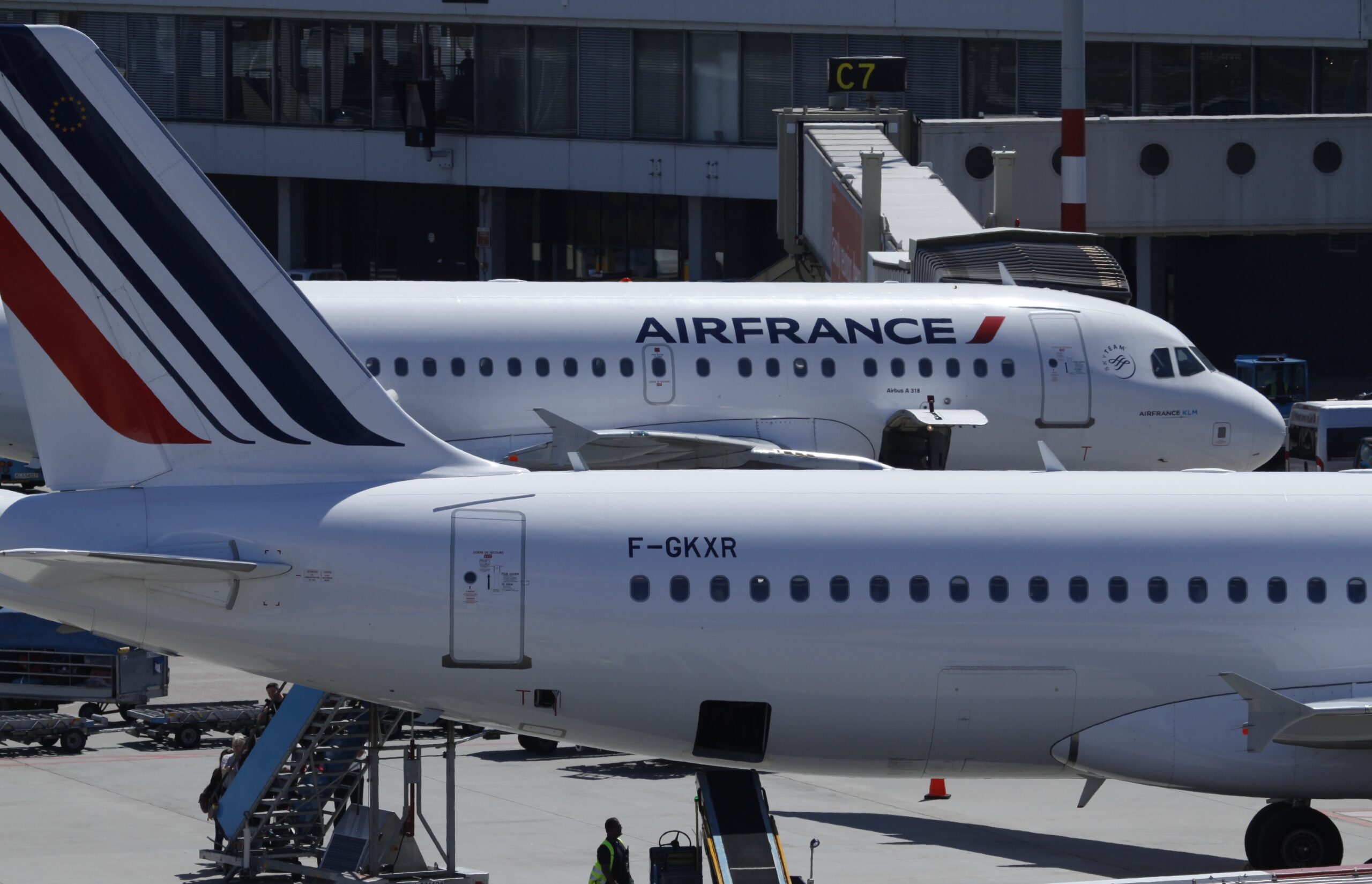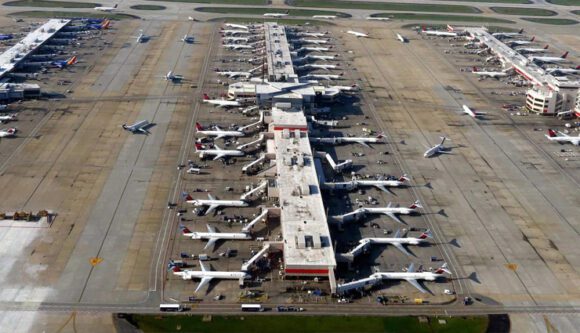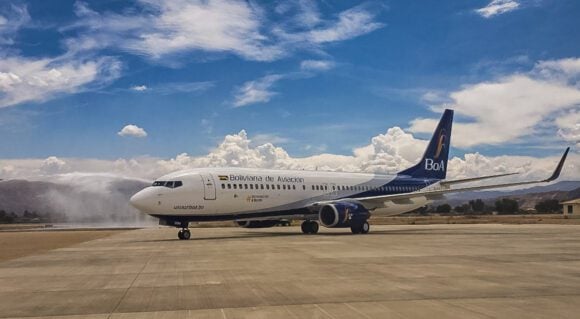
MG 9795 scaled
Air France-KLM has got approval from the European Commission for an additional EUR 4.0 billion recapitalization of Air France and its Holding company, the airline Group confirmed on April 6. This follows on remarks by French Minister of Finance Bruno Le Maire over the Easter weekend when he said an agreement was imminent. A further capital increase through a private placement to institutional investors, a public offering, and a priority period to existing shareholders will follow.
The new measures include EUR 1.0 billion as a capital increase in Air France, with a priority subscription period for existing shareholders. This is conditional on approval from the French Autorité des Marches Financiers. The second step is that the government-backed direct loan provided in May last year will be converted into Super-Subordinated notes or perpetual hybrid bonds. The maturity of the loan has been extended into 2023. The package will improve the Group’s equity position by a combined EUR 4.0 billion without an impact on cash. The French state will keep its share capital and voting rights strictly below thirty percent (29.9). In 2020, the government helped Air France with a EUR 7.0 billion package.
Air France has to surrender eighteen slots
The recapitalization comes at a price for Air France. In order to comply with the European Union’s Covid-19 temporary framework package, the airline has to release up to eighteen slots at Paris Orly to a competing airline. The competing carrier is obliged to base its aircraft and crew at Paris’ second airport. How the release of the slots will impact Air France remains to be seen, but it is likely it will include its subsidiary Transavia France which is in the process of making Orly one of its major hubs. Air France had tried to prevent the surrender of slots but has been forced to, just as was Lufthansa at Frankfurt when it received EUR 9.0 billion in recapitalization funds last year.
EC-rules also prescribe that Air France is restricted on acquisitions, share buy-back dividend distributions and the remuneration of its management.
KLM excluded from the recapitalization
The capital increase explicitly excludes KLM. On the Dutch airline, the Group’s statement says that the Dutch government is continuing discussions with the EC and stakeholders about potential capital-strengthening measures. A joint statement by the French and Dutch governments says that “the Dutch State will further investigate, together with the relevant stakeholders, especially with AFKLM, KLM, and the European Commission, the conditions under which a KLM recapitalization could take place and a potential intervention of the Dutch State in such recapitalization. Each State will comply with the commitments as required by the European Commission under the EU Temporary Framework, including the exit of their support and competition remedies.”
In 2020, the Dutch provided a combined EUR 3.4 billion in state-backed loans and loan guarantees for KLM. For the moment, the government will stick to its current share in KLM as the airline itself says there is no immediate need to strengthen its equity position. Also, KLM is reluctant to commit to EC restrictions, like the likely release of a percentage of slots at Amsterdam Schiphol Airport. Don’t expect any quick decisions from the Dutch, as following national elections on March 17, a complicated early start to the formation of a new government is expected to be followed by a prolonged period.
The joint statement says both governments “support the Group’s intention to restore its balance sheet and the first step of this recapitalization plan. (…) This plan is aimed at enabling the Group to recover from this crisis while focusing on its continued development, improvement of its business rationale, and its results. Each State supports the management of the Group in achieving these objectives and maintaining its position as a key player in the European aviation sector.”
According to KLM, there is no immediate need to raise new equity. (Richard Schuurman)
Dutch share diluted from 14 to 9.3 percent
The French capital increase could trigger a new battle for the governance of the Group, with the French likely to demand a higher stake on the supervisory boards. The statement says: “Each State supports optimal market participation in the Group now and in the future and, in the current circumstances, intends to size the State support to the required and necessary minimum and does not envisage to nationalize (part of) the Group with this recapitalization plan.”
While the AF-KLM press statement mentions that the capital increase will not dilute existing shareholders, the Dutch government says in a letter to parliament that its share in Air France-KLM will likely be diluted from 14 to 9.3 percent once the maximum number of shares available (214 million) has been issued. However, Minister of Finance Wopke Hoekstra says there will be no negative effect on the voting rights of the Dutch government. On the contrary: two years since buying extra shares, voting rights under French law have doubled to fourteen percent.
The government statement also confirms the strategic position of the airlines’ two hubs, Paris and Amsterdam: “The connectivity of France and the Netherlands is of great importance for both economies and therefore the recovery of the Air France – KLM Group is in the best interest of the two States. Through their activities at the hubs Roissy-Charles de Gaulle and Schiphol, the airlines also contribute to the direct and indirect employment and job creation in France and the Netherlands.” A working group, chaired by the two Director-Generals of Civil Aviation, has been created to discuss developments “relating to civil aviation policies and its impact on the connectivity of France and the Netherlands and the position of the Air France – KLM group at their respective hubs.”
China Eastern willing to invest
Shareholder China Eastern Airlines has shown its intention to participate in the additional share capital increase but will keep its share strictly below ten percent. Delta Airlines has no intention to subscribe.
Air France-KLM plans additional measures to increase capital subject to market conditions at a later date. Steps to restructure the balance sheet are under consideration but are likely to take until the Annual General Meeting of May 2022. The Franco-Dutch group is exploring various options like the issuance of new equity and ‘quasi-equity instruments’, with the aim of reducing the ratio of net debt/EBITDA to around 2.0 in 2023.
In a financial update, Air France-KLM says that it expects to end Q1 FY2021 with a EUR -1.3 billion net loss and an EBITDA of around EUR -750 million. During January and February, the operating results and EBITDA have been better than expected, partly to a ten-percent lower Capex compared to Q4 FY2020. The carrier is expecting a significant recovery during the coming Summer period, assuming vaccination programs will be rolled out successfully across Europe.
Views: 17




